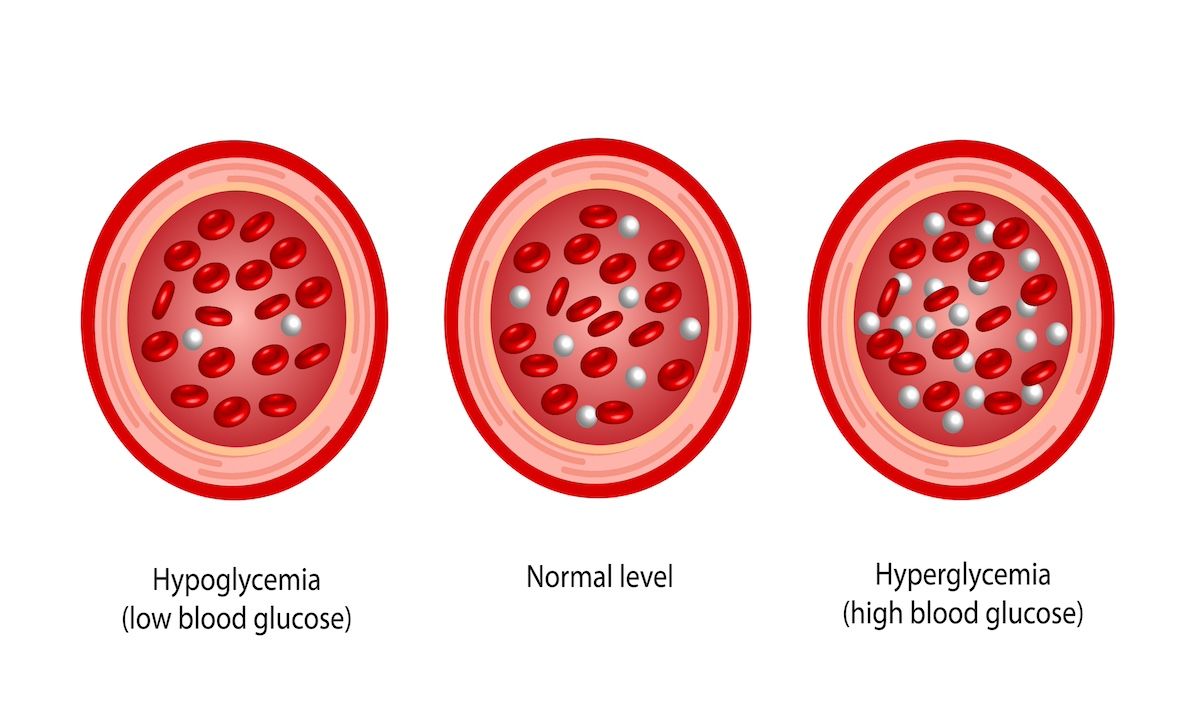- Center on Health Equity & Access
- Clinical
- Health Care Cost
- Health Care Delivery
- Insurance
- Policy
- Technology
- Value-Based Care
Cognitive Performance in People With Type 1 Diabetes Affected by Glucose Level
Individual variations in cognitive performance based on fluctuating glucose levels were observed, necessitating further research on the topic.
In people with type 1 diabetes (T1D), cognitive function can be affected by fluctuations in glucose levels, with high or low levels affecting cognitive ability differently based on the individual, according to the results of a study published in npj Digital Medicine.
Blood glucose levels | Image Credit: PH-HY - stock.adobe.com

Previous reports have indicated that hypoglycemia and, to a lesser extent, hyperglycemia can impair cognitive function in individuals with T1D. However, research is lacking on natural fluctuations in glucose levels and how those can affect cognitive ability in everyday life, the investigators wrote.
Developments and advances in cognitive ecological momentary assessment (EMA) and continuous glucose monitoring have given researchers the ability to collect high-frequency, high-quality data from individuals with T1D over time. Together, they provide new opportunities to better understand natural glucose fluctuations and their effect on cognitive ability.
The investigators obtained glucose and cognitive timeseries in 200 adults with T1D to analyze the dynamic, within-person associations between glucose and cognition. A secondary outcome for the investigators was to identify clinical characteristics that could predict individual differences in cognitive vulnerability to glucose fluctuations.
In determining their first primary outcome, the investigators found that processing speed, but not sustained attention, was vulnerable to fluctuations in glucose levels. They observed that large glucose fluctuations were associated with less accurate and slower digital symbol matching (DSM) performance. Additionally, there were meaningful individual differences in cognitive vulnerability to glucose variability for reaction time.
When glucose levels were 1 standard deviation below its mean, individuals with high vulnerability to glucose fluctuations responded 0.76 ms and 3.24 ms slower on the gradual onset continuous performance test (GCPT) and DSM evaluation, respectively, vs individuals with low vulnerability, the investigators found.
Additionally, when glucose was 2 SDs below its mean, individuals with high vulnerability to glucose fluctuations responded 1.8 ms (GCPT) and 9.30 ms (DSM) slower than individuals with low vulnerability.
Data-driven lasso regression was utilized to identify 7 variables that explained individual differences in cognitive vulnerability to glucose fluctuations. These were older age, greater time in hypoglycemia, greater number of severe hypoglycemic events in their lifetime, greater glucose variability, presence of microvascular complications, greater tiredness or fatigue, and a larger neck circumference, the investigators found.
Both hypotheses proposed by the investigators—that cognitive performance would be reduced at low and high glucose levels and that there would be individual differences in cognitive vulnerability to glucose functions—were supported by the data for processing speed, but not sustained attention. This pattern may be explained by the possibility of processing speed impairments being foundational to T1D, which underlies observed impairments in other domains. The investigators further posit that they did not see significant results for sustained attention because it is vulnerable to prolonged, rather than dynamic, changes in glucose levels.
Notably, the investigators sought to provide a description of optimal processing speed, which was 5.30 ms faster than average. This suggests that most within-person variation in processing speed occurs over a relatively small range, although it remains unclear if these performance gains and loses are perceived by individuals or have implications in T1D, the investigators wrote.
Optimal processing speed was observed to occur at glucose concentrations slightly above participants’ glucose means, which could be explained by metabolic habituation. Individuals could habituate to their normal glucose range, and therefore perform cognitively well within that range. At the same time, the opposite is possible, and individuals could gravitate towards glucose ranges that support optimal performance.
The investigators noted that further studies are necessary to sort through the possible explanations behind glucose fluctuation and optimal performance.
“T1D provided a powerful model for understanding the pathophysiology of cognitive fluctuations in a clinical population that experiences frequent, short-term cognitive impairment,” the investigators concluded. “Beyond T1D, this work demonstrates how data from physiological sensors and EMA can be integrated to better understand individual differences in daily functioning and clinical risk.”
Reference
Hawks ZW, Beck ED, Jung L, et al. Dynamic associations between glucose and ecological momentary cognition in type 1 diabetes. Npj Digit. Med. 2024;7(1):59. doi:10.1038/s41746-024-01036-5
